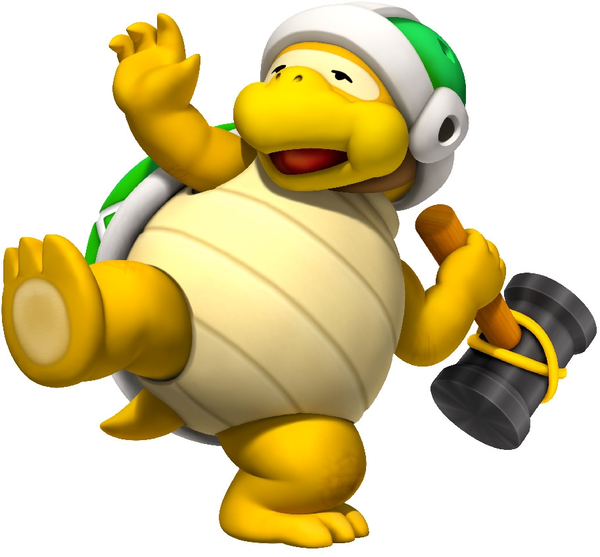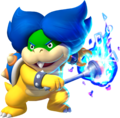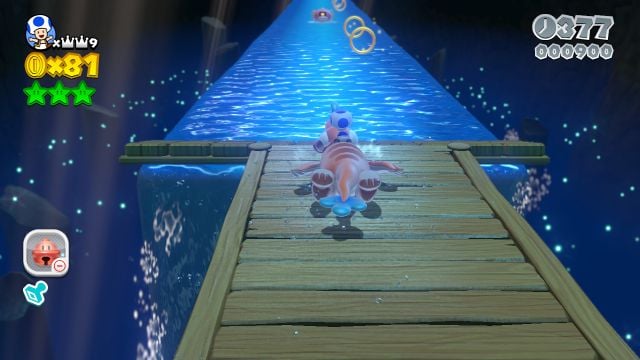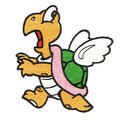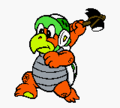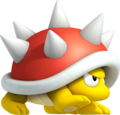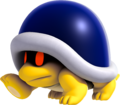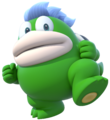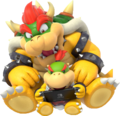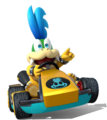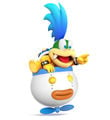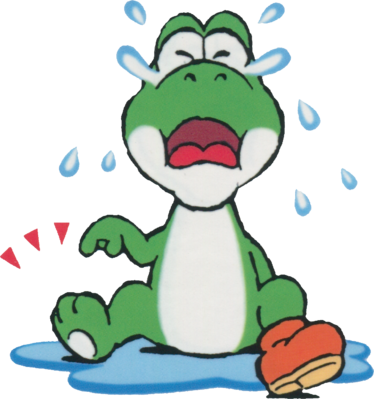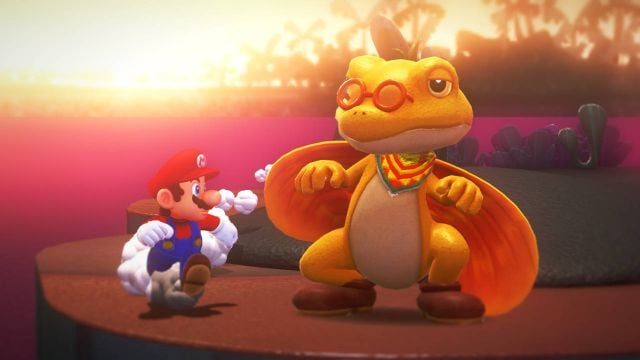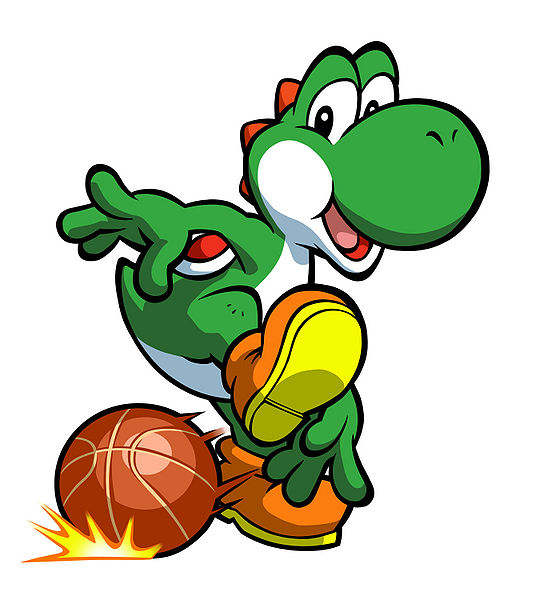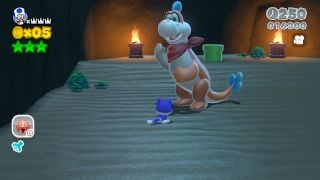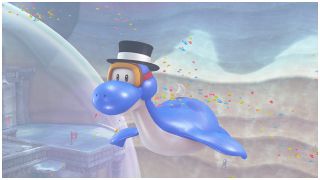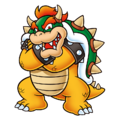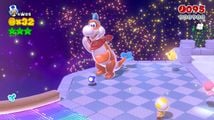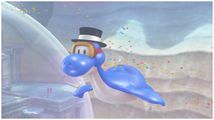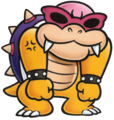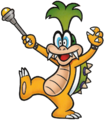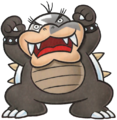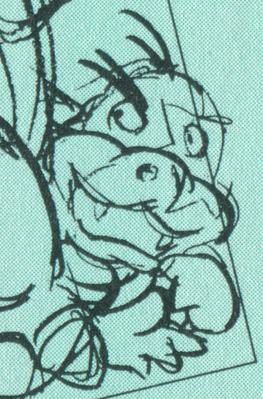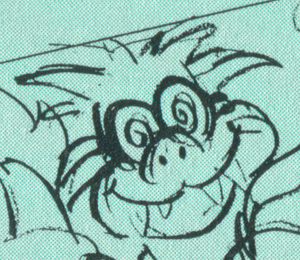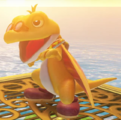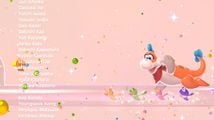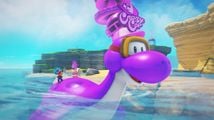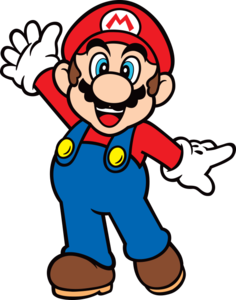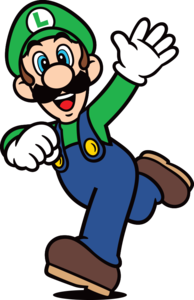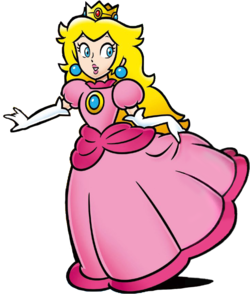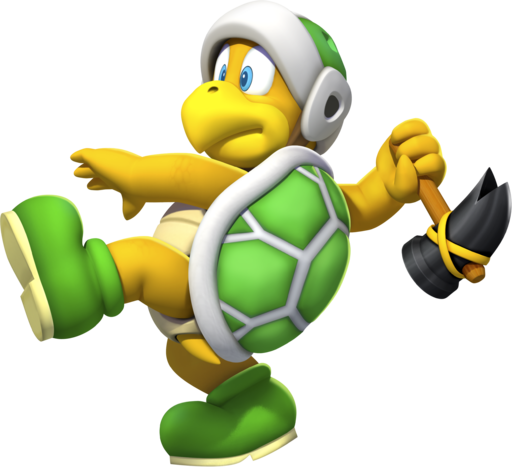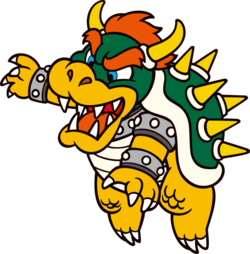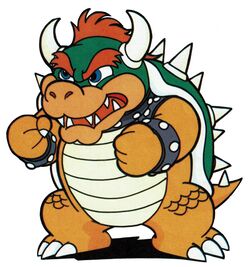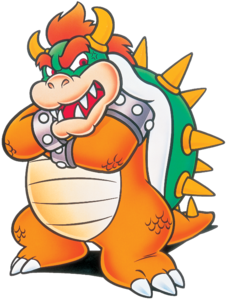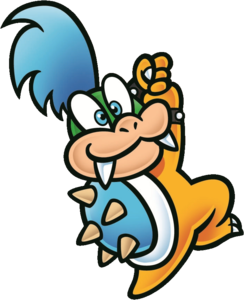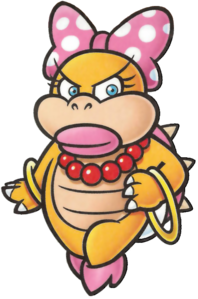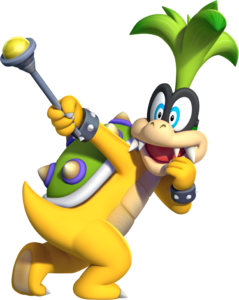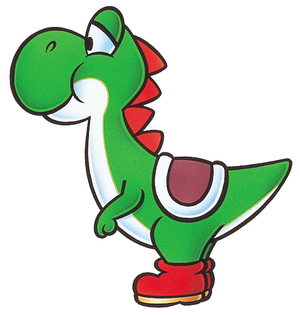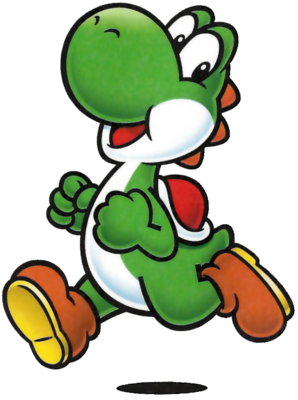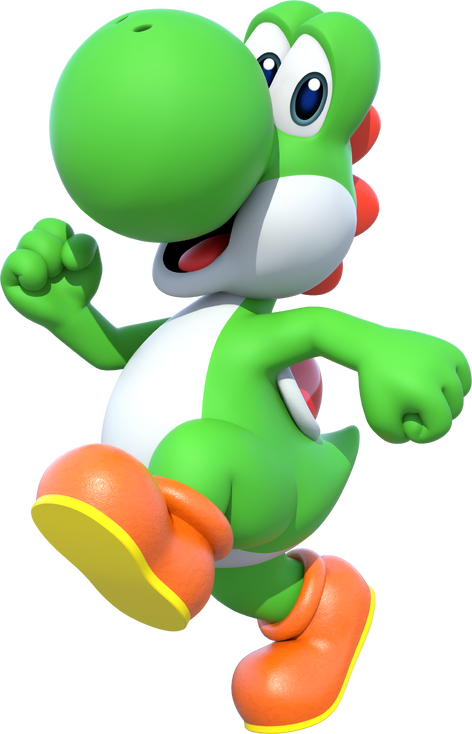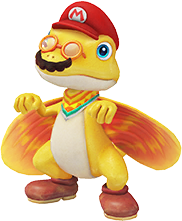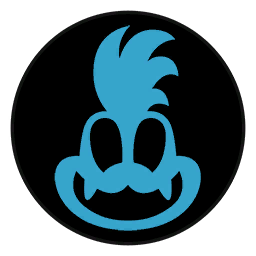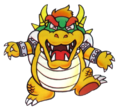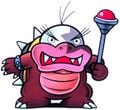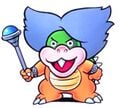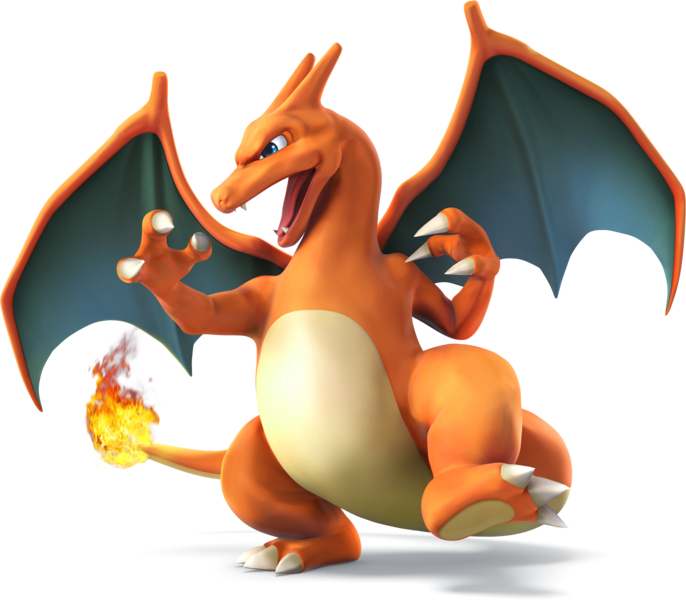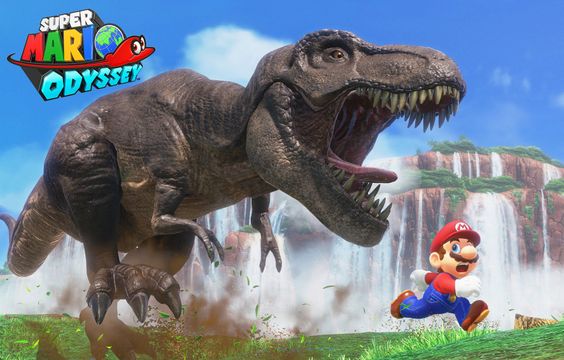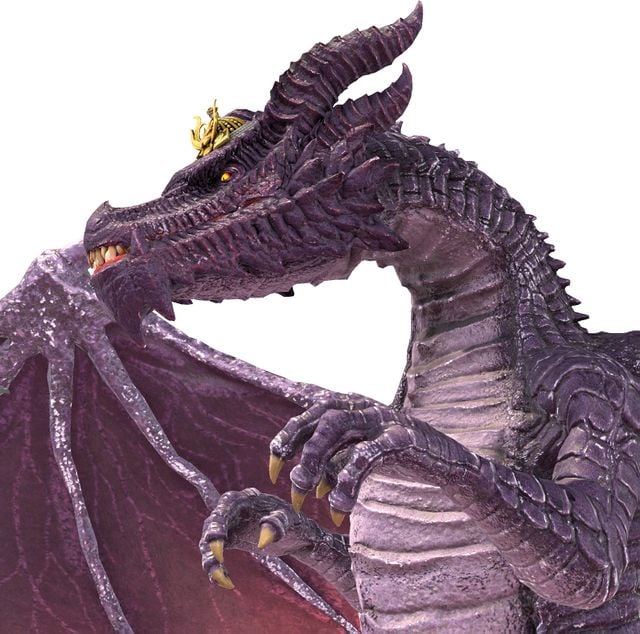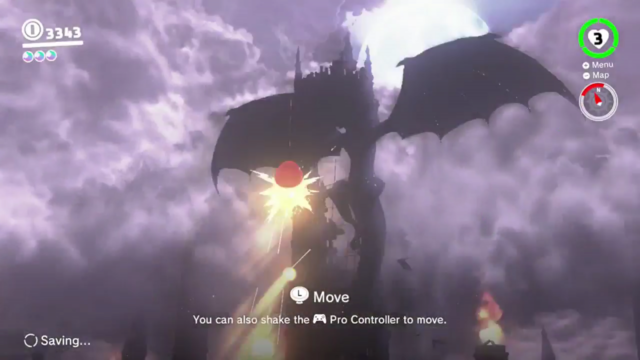User:Mister Wu/Cute Features in the Reptiles: Difference between revisions
m (Text replacement - "<references />" to "<references/>") |
m (maintenance) |
||
| Line 152: | Line 152: | ||
Two interesting cases are those of '''[[Bowser]]''' and '''[[Yoshi]]'''. The former '''was given blue eyes after his first redesign and maintained them until the American release of [[Super Mario World]]''', where the eyes were reverted to red: | Two interesting cases are those of '''[[Bowser]]''' and '''[[Yoshi]]'''. The former '''was given blue eyes after his first redesign and maintained them until the American release of [[Super Mario World]]''', where the eyes were reverted to red: | ||
<gallery widths=250 heights=300> | <gallery widths=250 heights=300> | ||
Bowser | SMBTLL-Bowser Art.png|[[Bowser]] in the [[Family Computer Disk System]] version of ''[[Super Mario Bros.: The Lost Levels]]'' | ||
Bowser SMB3 alt artwork.jpg|[[Bowser]] in ''[[Super Mario Bros. 3]]'' | Bowser SMB3 alt artwork.jpg|[[Bowser]] in ''[[Super Mario Bros. 3]]'' | ||
BowserSMW1.png|[[Bowser]] in the American manual of ''[[Super Mario World]]'' | BowserSMW1.png|[[Bowser]] in the American manual of ''[[Super Mario World]]'' | ||
Revision as of 23:48, September 12, 2020
The Super Mario games have a lot of reptiles in them, also thanks to Bowser and his army. One interesting thing about these reptiles is that often their design presents features that can be related to cuteness, (kawaii, 「 かわいい」), a fundamental concept of modern Japanese culture. It's no surprise that the reptiles seen in the Super Mario games have many cute features, but it's interesting to see the common and recurring ones to better understand how in the design of the characters a fine balance between cuteness and other traits such as fierceness (manifested through claws) is obtained through these features, allowing the cuteness to effectively cohexist with said traits. Without further ado, let's begin!
Fat
This is not a specific feature but rather a general design direction and it must not be taken too literally, as by design only a few characters are meant to be fat, e.g. the Sledge Bros.
Still, most reptiles in the Super Mario games, even if they are not meant to be fat in that their design doesn't exaggerate the traits linked to fatness, still presents traits typical of characters who are not slim, such as wide legs, muscles not being visible with arms presenting straight lines, rounded borders where the skin is found. This makes them cuter, as it gives more an impression of softness rather than brute force.
In the case of Plessie this fatness is even exploited to create a pleasant animation while outside of the water, as the dinosaur slides on its belly.
Plessie sliding on its belly in Super Mario 3D World
Padded feet
This is one of the most widespread features of the reptiles in the Super Mario games. The foot pads referred to in this section are a soft part of the paws of some mammals and are used for various purposes, such as increasing friction and acting as cushions. Reptiles are not meant to have them. Yet it's impressive to see how many characters feature them, this being just a selection:
A green Koopa Paratroopa in Super Mario Bros.
A Spike in Mario Party 10
Bowser and Bowser Jr. playing the Nintendo Switch
- Birdo MP9.png
Since they are typically distinguished through a different color and in recent artwork they are shown to display a different pattern with repsect to the scale-based pattern of the rest of the skin, I guess their aim is creating variety as well as cutesy by indicating an area meant to be soft - as mammals' foot pads are.
Some characters, such as Larry Koopa, feature quite a few artwork images displaying said trait:
Not to say that even some characters who were initially designed with shoes on their feet and are almost always seen with them, such as Yoshi, feature foot pads, showing their importance in terms of design:
Bright underbelly aera
This trait presents itself as a bright (typically white) area that spans the lower part of the body, covering at least the belly but typically spanning the whole lower part of the body, from the lower part of the muzzle until the lower part of the tail:
- Yoshi2 MP9.png
Glydon, a lizard featuring said trait, revealed that the skin of said area indeed has a different pattern which doesn't feature the scales seen in the upper part of the body, showing that again this trait is linked to softness, while also creating variety and also acting as a pleasant way to underline the layout of the body if it spans the whole lower part of the body.
Glydon with Mario in Super Mario Odyssey
While the various turtles often don't feature this trait possibly due to the shell covering the belly, defeating its aesthetic purpose, it's still not uncommon among the other reptiles:
Big and round upper end of the muzzle
This trait was made famous by Yoshi who has a distinct big and round upper end of the muzzle that covers part of the face:
Still, other reptiles feature it, in particular the friendly ones, Dorrie and Plessie:
Considering the friendliness of all these reptiles, I think it might be again related to the impression of softness that a big, round object confers.
Big head
This is a very common trait used in the design of fictional characters to relate them to newborn babies by making their head bigger in proportion with the rest of the body, so it will be dealt with briefly. Even tall men like Luigi have an head which is around a third of the body height tall, while Princess Peach and Rosalina have an head which is around a fifth of the body height tall:
It therefore comes as no surprise that the head of most of the reptiles of the Super Mario games is very big with respect to the rest of the body, even in the case of individuals who are stated to be adults, like Yoshi and Bowser whose head is around a third of the body height tall:
Bowser in the 30th Anniversary of Super Mario Bros. (2015)
Yoshi in the 1993 Nintendo Chracter Manual
Short legs
Most reptiles in the Super Mario games have short legs, likely due to most real life reptiles (e.g. lizard, crocodiles, turtles) having short legs as well. This trait is observed even in reptiles that are supposed to be tall:
- Iggy.jpg
- SM3DW Plessie's Plunging Falls E3.png
Beside being linked to real life reptiles, short legs are also a typical trait of newborn babies and as such they can also be linked to cuteness.
Big oval-shaped tall eyes
Eyes which are big and tall with an oval shape in their upper part are common in the reptiles of the Super Mario games and it's also one that affects the face significantly, often accompanied by a lack of eyebrows:
Big eyes are typical of newborn babies and are used to enhance the cuteness of the characters, being seen in various friendly reptiles:
but also in those that are meant to be enemies of Mario (but often are more or less implicitly cute as well):
Other features
Protruding teeth
Teeth that are protruding and are visible when the mouth is closed are one of the few traits which are officially acknowledged to be cute.[1] Among the most famous characters who feature protruding teeth there are of course the Koopalings:
Said trait is so relevant that it appeared even in their preliminary sketch:
Preliminary sketch of Morton Koopa Jr. found on page 65 of the Nintendo Official Guidebook of Super Mario Collection
Preliminary sketch of Iggy Koopa found on page 65 of the Nintendo Official Guidebook of Super Mario Collection
Curiously, despite the prtotruding teeth being acknowledged to be cute, many friendly reptiles lack them completely, possibly to display friendliness as the teeth are still related to bites:
A purple Dorrie in Super Mario Odyssey
Blue eyes
Even though they might be related to ice and thus a cold personality, blue is also the color of the sky and thus a sign of positivity. Mario, Luigi and Princess Peach have blue eyes, i.e. eyes featuring blue or light blue irises:
But so do enemies like the Hammer Bros:
Two interesting cases are those of Bowser and Yoshi. The former was given blue eyes after his first redesign and maintained them until the American release of Super Mario World, where the eyes were reverted to red:
Bowser in the Family Computer Disk System version of Super Mario Bros.: The Lost Levels
Bowser in the American manual of Super Mario World
Three Koopalings too have this trait, and maintained it even after Bowser's eyes were changed to red again:
In the case of Yoshi, he initially featured completely black eyes and his hand-drawn artwork still depict him with black eyes:
Yoshi in a 2015 coloring book
However, with the new computer graphics artwork images, a light blue iris started to appear and the pupil itself started having a blue color in the center revealing that the eyes are indeed blue:
Blue eyes is also one of the two traits that appear in the captured creatures in Super Mario Odyssey, showing its importance in terms of character design:
Feline mouth
This trait is characterized by the upper part of the mouth being shaped like a "3" rotated by 90° to the right and centered on the nose:
The emblem of Larry Koopa in Mario Kart 8
It is likely borrowed from cats and as such it can be considered a form of cuteness through relation with common pets, it's nonethless featured in some reptiles, notably Bowser and four Koopalings:
Final notes
I started thinking about this review of cute features of the reptiles when I recently saw a Pokémon-themed jigsaw puzzle who had right in the center this popular Pokémon, who also happens to be my favorite one, Charizard:
Looking at his design, even in this artwork that slightly enhances the aggressive apsects, in particular the muscles of the arms, with respect to the current hand-drawn artwork, reminded me of many cute features I had already seen in the Super Mario games, and now I can even list most of them:
- Fat
- Short legs
- Padded feet
- Bright underbelly area
- Protruding teeth
- Blue eyes
This shows that indeed, while Charizard's design might enhance the aspects related to mightiness (wings, horns, big size) and fierceness (claws, sharp teeth, ability to breathe fire), it actually retains cute elements, allowing it to reach what I find a delicate balance between cuteness, mightiness and fierceness. Surely, Charizard is mainly meant to be mighty and also fierce, it being a bipedal fire dragon with a burning flame on the tip of its tail, but this doesn't prevent it from being cute as well, as surprising as this apparent contradiction might be.
Indeed, it turns out that Charizard was one of the Pokémon designed by Atsuko Nishida, the designer of Pikachu and Raichu, Charmander and Charmeleon, Squirtle and Wartortle, among many.[2] She was actually brought into the design team of Pokemon Red and Green because there was a need of cute Pokémon she was meant to design.[3] Her care for cute traits was very evident in the case of the original Charmander line, with Charizard actually being the design on which Charmander was based, not the contrary.[3]
More importantly, this shows how some design features typical of the Mario franchise are actually used also in other franchises, indicating how relevant they can be, possibly because they are indeed linked to the Japanese concept of cuteness and as such, rather part of a broader cultural phenomenon that led to the addition of said cute elements.
As a side note, the most recent Super Mario game, Super Mario Odyssey, presents two reptiles that don't feature most of the aforementioned cute features in their design, the T-Rex and the Ruined Dragon:
It's interesting to note how their design stands out with respect to the design of the other reptiles in the Super Mario games, in that it could be considered more realistic due to the higher detail of every part of their body and, indeed, the aforementioned traits not being followed in favor of designs that recall restorations of the Tyrannosaurus rex of around twenty-five yers ago and modern Western dragons, respectively.
References
- ^ On page 65 of the Super Mario Pia, the bio of Ludwig von Koopa states 「出っ歯のような牙がかわいい。」 which means His overbite is cute.
- ^ Interview with Atsuko Mishida on Game Freak's website.
- ^ a b Interview with the creators of Pikachu.
